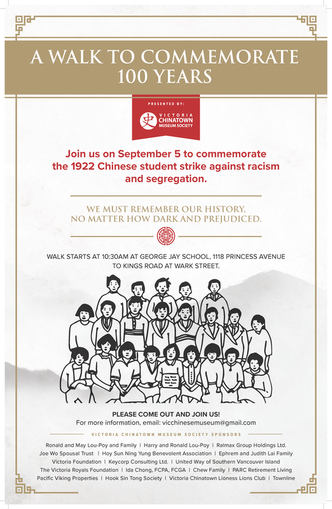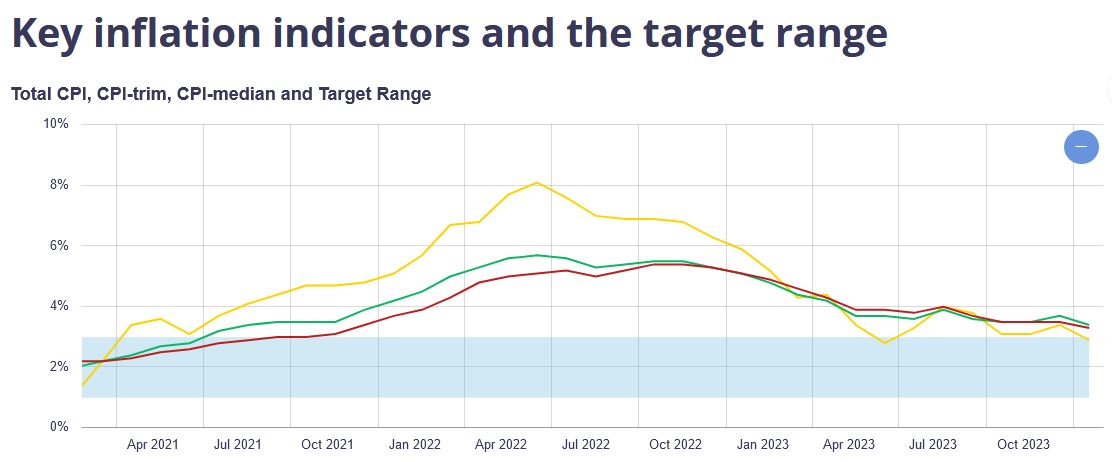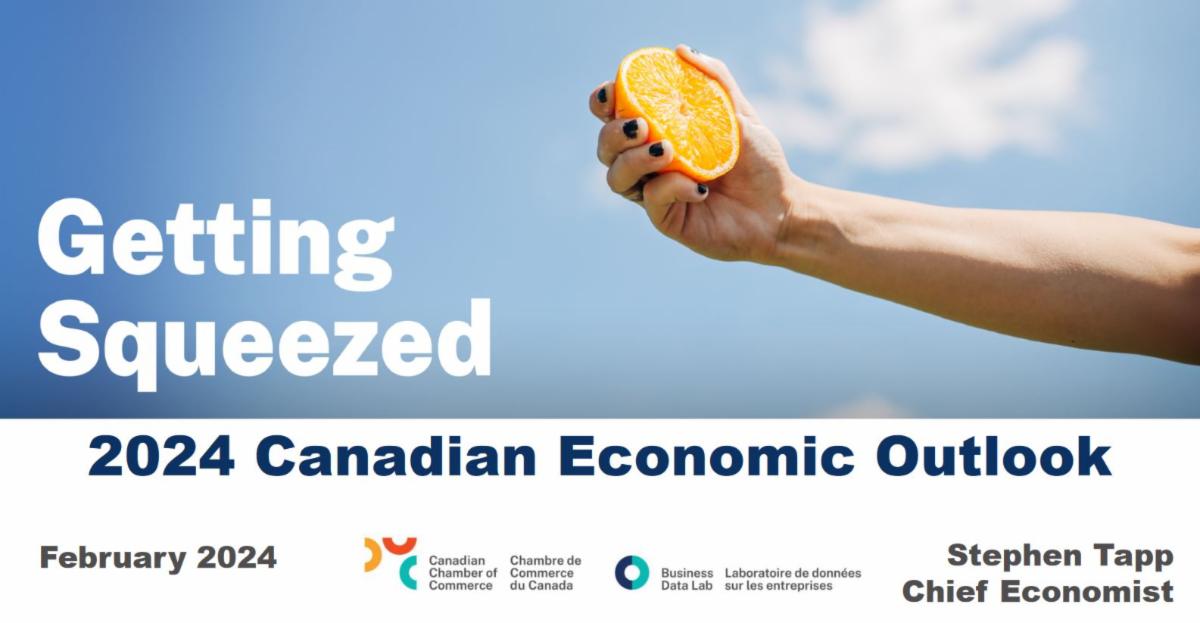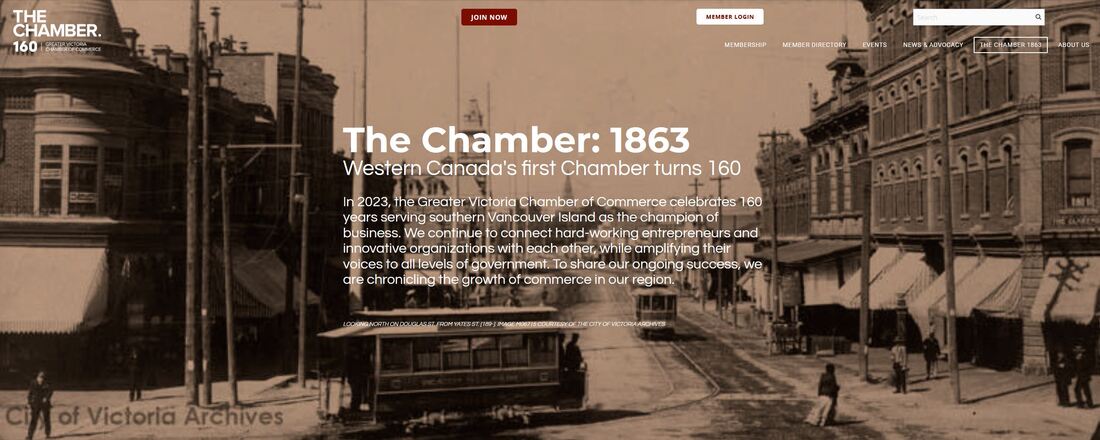|
A new Chamber initiative that will formally launch in August is already helping make Greater Victoria a great community.
The New to Canada Program aims to empower newcomer business owners in our region. To qualify, business owners must hold a valid business license and have been in Canada for three or less years. Black Press recently reached out to The Chamber to ask about the program and interview one of the first participants. Alejandra Chacon Gallardo is from Mexico and founded Regenerative Futures Consulting Corp. in Greater Victoria because she believes Canada is at the forefront of climate action leadership. Gallardo connected with The Chamber, and recognized the value of being a member. “If there is a possibility of helping you, (The Chamber) will be there,” Gallardo told Black Press. “It’s nice that they are building community.” The New to Canada program includes two years of membership with The Chamber and is designed to help newcomers successfully integrate into the business community in Greater Victoria. This program is funded through sponsorship from Air Canada, the Victoria Airport Authority, the Victoria Foundation, and Western Design + Build. "Currently, we are making a few more connections to prepare for a promotional campaign to raise wider awareness of the program," Chamber CEO Bruce Williams said. "Watch for our official launch and more coverage in August." Pay equity is one of the keys to unlocking productivity in our workforce, and vital for helping employers find and keep workers.
In 2023, British Columbia introduced the Pay Transparency Act to formalize a system for employers to ensure employee compensation was not being influenced by gender. Women in BC earn 17% less than men, based on median hourly wages. The disparity is higher for Indigenous, racialized and newcomer women. The province recently launched an online reporting tool for BC employers to prepare pay transparency reports, which are a legal requirement. By Nov. 1, all B.C. employers with 1,000 or more employees are required to prepare and post reports about their gender-pay gaps. The requirement has been introduced in stages to give employers time to prepare.
Drawing on data from Statistics Canada and pay transparency reports posted by employers last year, the province's first annual report provides an overview of the gender pay gap in BC by sector, employment type and intersectional identities. More homes.
That's the simple answer to so many of the complex challenges affecting our economy — from attracting and keeping workers to providing shelter for people camping on city streets. The Chamber consistently advocates for policy changes and investment that will boost our housing supply. And we applaud the latest announcement this week that sees a pilot Building Permit Hub begin operations in select regions of the province, including in the City of Victoria and the District of Saanich. The online tool is expected to be available at the local level this summer. The goal is to streamline and standardize local permitting processes that can be complicated and delay home construction. "This new one-stop shop for local building permits will reduce red tape for homebuilders, local governments and First Nations, and ultimately save money, speed up construction and help people get into homes faster,” BC Premier David Eby said in a news release. The new hubs:
More spending and more taxes have many business groups concerned about the future after the federal government released its ambitious 2024 Budget yesterday.
"Canada must end the cycle of tax and spend politics," Canadian Chamber of Commerce Senior Director of Fiscal and Financial Services Policy Jessica Brandon-Jepp said. "Fueling economic growth is the key to improving quality of life and affordability for Canadians." The national chamber network opposes any measure that increases costs for businesses currently experiencing economic headwinds. We also will work with our members to understand how the increase to capital gains tax will impact business. "(The) budget contains few surprises. Most of the major new spending was announced by the government over the last few weeks, and the government’s projections for the deficit are largely in line with previous predictions," Canadian Chamber CEO Perrin Beatty said. "Our lagging productivity and stalled GDP growth means Canadians are becoming collectively poorer and working harder to just remain where they are today." New taxes will cover about $18 billion with about $57 billion in added spending:
The BC Provincial Nominee Program is being updated to help people new to Canada better understand what is required to be nominated for permanent residency through the BC PNP. The program is the provincial government's only tool for directly selecting immigrants for permanent residency. The program currently prioritizes workers in health care, construction, early childhood education and other in-demand jobs.
"The BC PNP is competitive, but some recruiters misrepresent it as an easy pathway to permanent residency," the provincial media release said. "These updates will give people a better understanding of the education, experience and language skills that they need to be considered for nomination. The program updates align with new measures to protect international students from predatory institutions and recruiters, such as:
"The Chamber continues to work closely with our region's post secondary schools to support their highly successful international student programs," Chamber CEO Bruce Williams said. "The University of Victoria, Camosun College and Royal Roads University have set the bar for the country when it comes to attracting and training people who contribute to our country." The seemingly endless not-great news about inflation and interest rates took a pleasant turn this week. On Tuesday, Statistics Canada revealed that the Consumer Price Index rose 2.9% in January.
That's lower than economists expected, and within the target range that the Bank of Canada uses to indicate a balanced economy. As a comparison, inflation was 3.4% in December. "Inflation is now in the target range, which is good news for the Bank of Canada. But the Bank is also acutely aware of the stickiness of core measures and the impact of elevated shelter prices," Canadian Chamber Senior Economist Andrew DiCapua said. However, despite the surprise drop in inflation, the Bank is still expected to hold its interest rate at 5% until late spring. "The unexpectedly large declines in airline fares and clothing prices may be a sign of weakness in consumer spending, but could also partly reflect some data volatility," stated an Economics Report from CIBC. "However, even allowing for a partial rebound, inflation in Q1 is still tracking below the Bank of Canada's MPR forecast (2.9% vs 3.2%). So even with GDP growth running somewhat stronger than they expected, we still anticipate that interest rate cuts will start in June." Understanding economic trends is invaluable to helping businesses plan for the future. The Chamber relies on a number of sources for information and analysis, including our national network.
On Tuesday, Canadian Chamber Chief Economist Stephen Tapp provided members of The Chamber's Public Policy and Advocacy Committee with his insights. "We're fortunate to have access to a deep pool of experts who help us make effective use of our advocacy efforts," Chamber CEO Bruce Williams said. "The Greater Victoria Chamber of Commerce has a long history as Western Canada's first chamber and we continue to play an active role with the Canadian Chamber." Tapp spoke about the state of the economy and expectations for interest rate cuts, using the latest numbers from the Business Data Lab. Click the image to view Tapp's presentation. For information on joining a Chamber committee, go to victoriachamber.ca/committees for contact info. The Chamber is following up on concerns expressed by local post-secondaries facing a serious and unanticipated financial burden from the surprise federal announcement to cap the international student program.
Yesterday, the organization representing Canadian schools sent a joint letter to federal Immigration Minister Marc Miller. "We urge your department not to impose the letter of attestation requirement for college and undergraduate study permit applications until at least March 31 or until the provinces establish an effective process," the letter from Universities Canada and Colleges and Institutes Canada stated. "Additionally, we request urgent consultations with the sector to modify the cap policy, clarify the many outstanding questions and mitigate the negative impacts." On Monday, BC announced new regulations that will constrict the number of international students in the province. Of BC's 545,000 post-secondary students, 175,000 are from 150 countries other than Canada. "After speaking with our members impacted by these changes, The Chamber is concerned that this policy is being presented as a solution to the housing crisis when it will significantly reduce revenue needed by schools," Chamber CEO Bruce Williams said. "A better solution is to invest in more on-campus housing so that schools continue to provide the workforce our economy needs, while creating a pathway for foreign students to become taxpaying new Canadians." The federal government announced this week that it was putting a cap on the number of international students permitted in Canada each year. The measure is an attempt to ease the demand for housing, which is in short supply across the country.
However, the one-size-fits-all approach will hurt efforts to train international students needed to fill vacancies in industries facing a severe labour crunch. Child care and health care are two examples that depend on foreign workers to help meet the need. There are also concerns about the cap giving Canada a black eye with overseas students who will look to study in more welcoming countries. “The message has to be external, that Canada is open for business for international students. That’s hugely important,” Royal Roads University president Phillip Steenkamp told CHEK News. “There is still a commitment to bring a significant amount of international students. They make an enormous contribution to our economy and society, and we’ll continue to welcome them here.” The Times Colonist reports that Camosun College and the University of Victoria have experienced fluctuations in the number of international students from before the pandemic to now. Camosun had 2,094 international students enrolled in fall 2023, compared to 1,674 in 2019. UVic has roughly 1,600 international students in the current school year, and had more than 2,500 in 2019. Greater Victoria's unemployment rate of 4.1% in December was unchanged from November 2023. According to Statistics Canada, the region's population increased to 367,400 from 366,700 over the month.
Our local labour force was also up with 244,700 people in December compared to 242,900 in November. The stats reflect the national trend as employment growth slowed in the second half of 2023 with population growth outpacing the number of new jobs added to the economy. "The momentum in the labour market is weakening alongside the fastest population growth in more than 50 years," Canadian Chamber Senior Economist Andrew DiCapua stated in a news release. "With essentially flat job growth in December, the Canadian labour market ends 2023 with over 5% wage growth and an unemployment rate steady at 5.8%. Although hours worked rose for the month, this will be a drag on fourth quarter GDP as we round out the year. This signals to the Bank of Canada that the guise of a strong labour market is cracking amid strong labour force gains. With wages accelerating, the Bank was wise to not celebrate at their last meeting, possibly delaying their intentions to begin rate cuts." The provincial government is seeking feedback for a new museum that will share the history, culture and contributions of British Columbians with South Asian heritages.
“Public input, especially from South Asian communities, is vital to moving forward on this first-of-its-kind museum,” BC's Minister of Tourism, Arts, Culture and Sport Lana Popham said in a news release. Community-designed workshops and an online public survey will begin in early 2024. The South Asian business community has deep roots in Greater Victoria and today more than 10,000 people in our region identify as having South Asian origins. Check out The Chamber's 1863 Project, and provide feedback to the province about the planned South Asian museum at engage.gov.bc.ca. Chamber members have been calling for a better way to recognize certification gained outside BC. New legislation introduced this week is a step forward, recognizing 29 professions overseen by 18 regulatory authorities.
If the international credentials recognition act passes, the province could have a new superintendent by next summer in charge of fair credential recognition. "We know the stories of highly trained professionals who come to Canada and are only able to find work washing dishes or driving cabs," Chamber CEO Bruce Williams said. "International standards often correspond with provincial standards, so it makes perfect sense to let people who choose to come here continue their careers here. Employers in our region have positions going unfilled and workers are underemployed. Simply put, recognizing international certification will improve this disconnect." The 29 occupations are:
The Chamber has long called for a more sensible approach to recognizing the skills newcomers bring to Canada. We've all heard the stories of trained doctors driving cabs and other professionals who can't work in their chosen field despite high demand for their service.
"That is changing. I'm thrilled to share the news that British Columbia is moving to help regulatory bodies improve the process of credential recognition," Chamber CEO Bruce Williams said. "We hear all the time from employers who are frustrated because they need workers but can't hire qualified newcomers because they were trained out of province." Upcoming legislation will streamline pathways for skilled people with international credentials while maintaining standards and safety. According to the provincial government, 387,000 newcomers are expected to enter the B.C. workforce, filling 38% of job openings over the next 10 years. A report released Wednesday morning offers a tangible take on how many new homes need to be built in Canada to restore affordability.
The Canadian Mortgage and Housing Corporation said that the slowing economy and growing population have changed the forecast for where housing is most needed. We need about 3.5 million new homes by the end of the decade, with BC and Ontario dealing with the largest gaps between supply and demand. The predicted shortfall has grown since last year as the CMHC forecasts a slowing economy, tougher financing climate and stretched labour force will result in less construction. "For British Columbia, higher estimated household numbers in 2030 and slightly lower estimated income per household lead to a relatively neutral impact on overall demand," the report states. "Still, the supply gap increases because of a lower projected number of housing units that will be built." The CMHC said its analysis shows the importance of modelling demographic changes as well as economic conditions when planning policies to increase housing supply. Housing supply is at the core of Chamber advocacy. Greater Victoria, like much of North America, is facing a crunch — not enough homes are being built to meet demand. This affects the cost of living for employees, delays people from starting a family and impacts the availability of shelter for people experiencing homelessness.
A group of Canadian housing sector organizations recently released the National Housing Accord: A Multi-Sector Approach to Ending Canada’s Rental Housing Crisis. The report offers 10 solutions that aim to focus the efforts of all levels of government and industry on policies to support more building. "It's a bit of a Catch 22 in that we need skilled tradespeople to build homes so that the market has enough supply for skilled tradespeople to be able to afford to live here," Chamber CEO Bruce Williams said. "The lack of housing affects people at all income levels but is particularly concerning for people early in their careers and those who have the added costs that come with raising kids." A panel of experts has been tasked with developing a Community Safety and Well-Being Plan for the City of Victoria. The goal is to address multiple complex issues such as "declining civility and social cohesion, increasing social disorder, inadequate housing supply and homelessness, poverty, inequality, addictions, mental and physical health challenges, criminal activity and other factors."
The panel will work over the next 15 months to advise Victoria council on immediate interventions as well as long-term solutions. "I’m in frequent contact with the business community throughout the downtown and beyond and I’m consistently hearing that the impact of the pandemic is far from over," Fort Properties Ltd. CEO/co-owner Suzanne Bradbury said in the city's news release. "I believe that this is the right initiative at the right time and I’m honoured to bring a small business perspective.” Along with Bradbury, the panel includes:
When you're used to looking to the future, it can be a little awe-inspiring to look back and see how far we've come.
On Thursday, Feb. 9, The Chamber celebrates our 160th anniversary with a special sold-out evening planned at the Royal BC Museum. The gathering is another great way for Chamber members to connect while discovering some of the fascinating stories that have shaped our region and our organization. It's the first of many opportunities planned throughout the year. Another way you can join in our celebration is with The Chamber 1863 web project, which takes a deep dive into the history of our organization and the many communities that contributed to the growth of trade and commerce in our region. It's a fascinating look at people who left a legacy, and a chance to better understand the struggles of those who overcame discriminatory social and political practices of the times. The site is live now, and is a living project that we anticipate will continue to grow as more information and content becomes available. Have a look at make sure to follow The Chamber's social platforms for ongoing updates on the project. Send your feedback to [email protected]. The start of a new year is an opportunity to reflect back and look ahead. Chamber CEO Bruce Williams has been speaking to media about some of the experiences, challenges and opportunities facing business right now.
For example, the winter weather that blitzed Greater Victoria right before the holidays caused havoc for travellers but shoppers still found a way to get their gift buying done in time. Retailers reported a better than expected experience at their cash registers, though part of that seems to be an ongoing shift in consumer habits. “They’re spending a little bit more but buying less. In other words, going for quality over quantity,” Chamber CEO Bruce Williams told CHEK News. As well, news that Canada set a record for immigration numbers was welcomed by businesses that continue to face challenges finding and keeping workers. Black Press highlighted The Chamber's efforts to encourage more new Canadians to settle in Greater Victoria, as well as faster approvals for skilled workers. “They bring their skills but another really important element is they bring their culture,” Williams told the Victoria News. “The more opportunities we have to learn more about other cultures, the better we are.” Doctors, tradespeople and hospitality workers are needed and our economy will immediately benefit from approving people with internationally obtained skills to work in their areas of expertise. “The lack of recognition of those credentials is kind of counterproductive to bringing someone here (because of) those credentials if they can’t work,” Williams said. Finding and keeping workers has been an ongoing challenge facing every sector and almost all employers in Greater Victoria and across the country. We need a larger workforce to enable organizations to reach their economic potential. One of the key solutions is to welcome more new Canadians to our region. Last year, Canada set a record for immigration as 431,645 people became new permanent residents — the most since 1913. The target for 2023 is 465,000.
Canada's labour force growth is almost 100% dependent on immigration. The Chamber has been working with community partners and our national network to advocate for immigration that prioritizes workers with skills needed by employers. We're also working to ensure Greater Victoria receives its fair share of immigration, which typically gravitates to Canada's larger cities. Greater Victoria continues to have one of the tightest labour markets in Canada. The latest numbers from November show our unemployment rate is back to 3.5%, according to Statistics Canada. That's down from 4.3% in October and closer to where the region typically was before the pandemic.
"We know there is work in our region and that makes us attractive to ambitious people who want to move here and build their careers," Chamber CEO Bruce Williams said. "Our regional economy benefits from having the stability of BC government jobs as well as CFB Esquimalt. However, we still need to address housing supply in Greater Victoria to make sure we can retain people who want to work here and contribute to our community." There is some good news on that front as new construction jobs appear to be driving the lower rate. There were 18,400 people employed in construction this November compared to 13,500 in November 2021. Businesses that service the real estate industry are a major contributor to Greater Victoria's economy. However, rising interest rates have slowed sales. Throw in the traditional quiet period around the holidays and fewer properties are changing hands. Only 384 sales were recorded in the region for November, down from 653 last November.
There are also concerns about potential unintended consequences of recent changes to the provincial Strata Property Act. "It is an open question whether these changes will bring any additional rental stock to the market — with BC's complex Residential Tenancy Act not all homeowners of vacant strata homes have a desire to become landlords and current interest rates are less attractive to investors who may want to purchase strata rental properties," Victoria Real Estate Board President President Dinnie-Smyth said in a news release. "It is also possible that these measures will contribute further to eroding housing affordability as older stratas with rental restrictions were generally valued lower than their rentable counterparts." Slower sales have also contributed to a slight dip in market values over the last few months. That could mean some property assessments — being sent out soon to homeowners from BC Assessment — will be higher than current market value. “I want to emphasize that assessments are based on July 1 values of this year, meaning that when similar properties were sold up to and around July 1, those market value sales are used to calculate your assessed value," Assessor Bryan Mura said in a news release. “An increase in assessment value does not, however, necessarily result in an increase in property taxes. Taxes are typically only affected if you are above the average value change for your community." A pair of announcements over the last week offered good news for efforts to find and keep workers in Greater Victoria. On Nov. 16, the federal government listed changes to the types of jobs considered high demand. Sectors such as health care, construction and transportation will benefit from having 16 new occupations included under the Express Entry system.
Meanwhile, BC announced today a plan to encourage more skilled immigrants to settle outside of the Lower Mainland. That should help regions such as Greater Victoria. The incentives give candidates in the Provincial Nomination Program a higher priority if they have worked outside of Metro Vancouver. The same priority will be given to recent grads of post-secondary schools outside of the Lower Mainland. A plan to increase the number of people immigrating to Canada is a step in the right direction. Employers are facing a challenging labour market as demographic forecasts show a growing number of job vacancies in the years ahead. The federal government's new plan, announced Tuesday, will see immigration increase by almost 1.5 million over the next three years.
"I think employers in Greater Victoria still want to see details about how the Express Entry system will work to ensure newcomers have the skills needed to fill open positions," Chamber CEO Bruce Williams said. "There are also questions around how the Provincial Nominee Program might help settle new Canadians in Greater Victoria." The Chamber has worked with our national network to call for better recognition of credentials so that people who choose to live in Canada are able to continue careers they've trained for. We all benefit from the addition of skilled professionals who can make immediate contributions to our economy. Immigration event for employers Immigration, Refugees and Citizenship Canada is offering a virtual learning series to help employers learn more about Canada’s economic immigration programs. There are four sessions and you can attend as many as you want. Topics include an overview of outreach services for employers, the benefits of hiring global talent and an introduction to work permits.  On Monday, Sept. 5, a shameful moment in Greater Victoria's history will be commemorated with a walk and an official apology. The ceremony marks the 100th anniversary of the decision to segregate Chinese students up to Grade 7 in Greater Victoria. On July 27, Alan Lowe, chair of the Victoria Chinatown Museum Society, appeared before the current board of the Greater Victoria school district to ask for a formal apology. The Chamber is also hoping to formally apologize at this time for the role our organization played in advocating for this discriminatory action. "I want to acknowledge The Chamber’s role in supporting the racist and non-inclusive statements and practices of that time in our history, and I apologize unequivocally," Chamber CEO Bruce Williams said. "And I promise we will continue working to be welcoming of all businesses so we can better represent the true diversity of our region." The Chamber was founded in 1863 to promote investment in our region. "Over the course of our history in Greater Victoria, there were times when we did the wrong thing. We acted with indifference or even encouraged discriminatory practices," Williams said. "This was the case with segregation of Chinese students, which had the insidious intent of making it harder for the Chinese community to live and work here. It was racist and it was wrong 100 years ago." Today we know that diversity is what makes all of us strong. We also know we need more than just words. To that end, The Chamber has created a committee to promote Inclusion, Diversity and Equity. The fastest-growing region in Greater Victoria is getting a new post-secondary campus. The province announced today it was contributing $77 million toward the $98 million project that will see Royal Roads University, the University of Victoria, and Camosun College join forces as part of a group of educational providers at the campus.
Located in the City of Langford, the five-storey mass timber building will make it easier for students from the West Shore to attain a post-secondary education. The facility is expected to open in 2024 with 600 students, and expand to 1,300 students by 2036. |
Categories
All
|
Copyright © 2021 Greater Victoria Chamber of Commerce. All rights reserved.
#100 – 852 Fort St., Victoria, BC V8W 1H8, Canada | Phone: (250) 383-7191
[email protected] | Site Map
#100 – 852 Fort St., Victoria, BC V8W 1H8, Canada | Phone: (250) 383-7191
[email protected] | Site Map
Notice a typo or broken link? Please let us know so we can fix it ASAP. Email [email protected]




